Lorraine Moser is experienced in advising on the buying and selling of freehold and leasehold residential property, remortgages, Deeds of Gift, Declaration of Trusts and Transfers of Equity. She offers a personal service assisted by dedicated secretarial support recognising the importance of prompt and regular communication throughout a transaction.
See our Residential Property Services below;

One of the most common reasons for using a solicitor will be for buying or selling property. Unfortunately the whole process has a reputation of taking too long and being enormously stressful. It should be an exciting time and for most people will be the most significant financial transaction they undertake in their lifetime. Regrettably too many law firms employ large teams of inexperienced and unqualified staff and work in a “call centre” type environment.
We pride ourselves on the personal service that our lawyers provide and are recommended by local agents and other professionals.
Many of our clients return to us time and time again and recommend us to family and friends.
The Conveyancing Team gained Conveyancing Quality Scheme Accreditation in 2011, a scheme introduced by the Law Society to provide a recognised quality standard for residential conveyancing practices.
Sales of Residential Property
The Process
- Taking initial instructions
- Checking the title and preparing contract documents
- Dealing with enquiries raised by the buyer’s conveyancer
- Agreeing exchange and completion dates and subsequently dealing with the exchange and completion
- Receiving funds from buyer’s solicitor
- Paying off any mortgage on the property
- Accounting to you for net sale proceeds
How long will this take?
A number of factors need to be taken into account when looking at the length of time a transaction will take. Typically the process takes between 8 and 12 weeks.
The length of time will vary depending on the number of parties in the chain, whether parties require mortgage financing, whether surveys are being undertaken or whether a property is freehold or leasehold.
Our Charges
Our fees will vary depending on the value of the property that you are selling but are broadly based on the scale below. Our fees are subject to VAT at 20%. In addition to our legal fees in relation to the sale of a property you should also expect to pay approximately £10 for up to date copies of title registers and currently £25 plus VAT for the administration charges and bank fees for the electronic transfer of funds. With the sale of a leasehold property there will also be charges payable in relation to management company information and those third party fees will not generally be known at the outset but and you will be advised as soon as that information is available.
| Property Price | Legal Fees (+ Vat) | Additional Fee for Leasehold Titles |
|---|---|---|
| £0 - £129,999 | £850 | £350 |
| £130,000 - £149,999 | £925 | £400 |
| £150,00 - £199,999 | £975 | £425 |
| £200,000 - £299,999 | £1,000 | £425 |
| £300,000 - £349,999 | £1,100 | £450 |
| £350,000 - £399,999 | £1,200 | £450 |
| £400,000 - £449,999 | £1,300 | £450 |
| £450,000 - £499,999 | £1,400 | £500 |
| £500,000 + | 0.3% of sale price | £500 |
In the event that your transaction becomes abortive our fees will be charged on the basis of the time spent at an hourly rate of £175 per hour plus VAT.
One of the most common reasons for using a solicitor will be for buying or selling property. Unfortunately the whole process has a reputation of taking too long and being enormously stressful. It should be an exciting time and for most people will be the most significant financial transaction they undertake in their lifetime. Regrettably too many law firms employ large teams of inexperienced and unqualified staff and work in a “call centre” type environment.
We pride ourselves on the personal service that our lawyers provide and are recommended by local agents and other professionals.
Many of our clients return to us time and time again and recommend us to family and friends.
The Conveyancing Team gained Conveyancing Quality Scheme Accreditation in 2011, a scheme introduced by the Law Society to provide a recognised quality standard for residential conveyancing practices.
Purchase of a Residential Property
The Process
- Taking initial instructions.
- Obtaining contract documentation from the seller’s solicitors and reviewing that documentation.
- Implementing search applications and raising any enquiries as a result of title investigation and reviewing search results.
- Reviewing any mortgage offer and advising you with regard to the conditions.
- Reporting to you on contract documentation.
- Agreeing exchange and completion dates and then undertaking the exchange and completion.
- Arranging for the transfer of funds to the seller’s solicitors.
- Attending to payment of Stamp Duty Land Tax and making the Land Registry application and attending to any requisitions raised by them.
- Reporting to you and any mortgagee following registration.
How long will this take?
A number of factors need to be taken into account when looking at the length of time a transaction will take. Typically the process takes between 8 and 12 weeks.
The length of time will vary depending on the number of parties in the chain, whether parties require mortgage financing, whether surveys are being undertaken or whether a property is freehold or leasehold.
Our Charges
Our fees will vary depending on the value of the property that you are buying but are broadly based on the scale below. Our fees are subject to VAT at 20%. In addition to our legal fees in relation to the purchase of a property you should also expect to pay for searches which are approximately £350 and currently £25 plus VAT for the administration charges and bank fees for the electronic transfer of funds. With the purchase of a leasehold property there will also be charges payable to the management company and/or landlord and those third party fees will not generally be known to us at the outset of the transaction but will be ascertained by us as early as possible and you will be advised as soon as that information in available.
You will also be required to pay Stamp Duty Land Tax and Land Registry fees both of which are calculated on the property value. We can let you know what those fees are when we provide a formal estimate of charges.
| Property Price | Legal Fees (+ Vat) | Additional Fee for Leasehold Titles |
|---|---|---|
| £0 - £129,999 | £850 | £350 |
| £130,000 - £149,999 | £925 | £400 |
| £150,00 - £199,999 | £975 | £425 |
| £200,000 - £299,999 | £1,000 | £425 |
| £300,000 - £349,999 | £1,100 | £450 |
| £350,000 - £399,999 | £1,200 | £450 |
| £400,000 - £449,999 | £1,300 | £450 |
| £450,000 - £499,999 | £1,400 | £500 |
| £500,000 + | 0.3% of sale price | £500 |
Our costs will be more if the property is a new build or in the event you have a more complex funding arrangement.
In the event that your transaction becomes abortive our fees will be charged on the basis of the time spent at an hourly rate of £175 per hour plus VAT.
Often when making Wills or undertaking tax planning clients will talk to us about making a lifetime gift of their home to their children. The most common reasons cited for this are (a) to make things easier after their death; (b) to offload responsibility for the upkeep of the property; (c) to avoid Inheritance Tax on death; and (d) to avoid paying care fees should they need to go into residential accommodation.
The first two of these motives are not unreasonable – although it is quite straightforward and relatively inexpensive to transfer a property after death; and children rarely live up to expectations when it comes to the upkeep of a property in which they themselves are not living.
However, if there is an Inheritance Tax liability, the value of your home will still be included in your estate unless you survive 7 years after it is gifted and you do not continue to live in the property. Giving away your home and continuing to live in it is known as making a “gift with reservation of benefit” – that is, you are still using the property as your own. In these circumstances, the value of your home will form part of your estate no matter how many years after making the gift you die.
So far as care fees are concerned, giving away your home (or any other substantial asset) is regarded as deliberately depriving yourself of assets. Should you later require any form of care, the value of the property would therefore be included when any assessment for fees was carried out, unless a spouse also occupies the property at the time. This could therefore leave you with a problem if you have gifted your home to your children and then neither you nor they have the cash funds to pay for any care you may need. You should also bear in mind that the 7 year expiry rule does not apply in relation to care fees and individual local authorities may check back even further to ensure that you have not given away assets which could be included in their assessments.
There are further possible situations to consider, possibly the most significant of these being death, divorce and bankruptcy. If your child or anyone else to whom you have gifted your home should die before you, their share of the property will form part of their estate and could be left to someone to whom you are unrelated or even do not know. Or the person to whom you have gifted your home could be divorced, so that their share of the property forms part of a divorce settlement. Finally, that person could be declared bankrupt, so that their share of the property falls into the hands of the Trustee in Bankruptcy. In each of these circumstances, there is the potential for you to lose your home entirely.
You may feel that you know your family very well and are therefore sure that they would not allow you to become homeless if you were to gift your property to them. You should bear in mind that any of these three scenarios could occur for reasons beyond their control.
Whatever your reason for making a gift of property, our conveyancing and private client teams are able to advise on your options and the merits and pitfalls of any particular course of action.
When buying a property as a couple, perhaps a first home together, you have many things to worry about and consider. You have probably viewed many properties and disagreed about various things and finally you find one which suits both of you. Your offer is accepted, mortgage agreed and you have instructed your solicitor. Fairly early on in the process, your solicitor or conveyancer will ask you how you would like to own the property. As ‘Joint Tenants’ or ‘Tenants in Common’. It is not something you will likely understand in its entirety but it is important to make an informed decision and know the essential differences.
The defining feature of a Joint Tenancy is that you will own the entire property as equal partners, you will each own 100% of the property. If you wish to hold the property in specific shares, for example one if you is contributing more to the purchase, or wish to leave your share to someone other than your partner on your death, you will need to hold the property as Tenants in Common.
When owning the property as ‘Joint Tenants’ the main appeal to most is generally the rule of survivorship. Should one of you pass away, the entire property is automatically transferred to the survivor. As Joint Tenants you will be unable to leave your share of the property to anyone other than the person you own it with. It is favourable for some to do this as it can prevent creditors after your death from having a claim in your property. However, in other cases, such as business partners buying a property as an investment, they will be unable to pass their separate shares in the property to their families, as the survivor would own the property following the death of the first.
Although unlikely, you may also need to consider the consequences of the death of Joint Tenants simultaneously, when the order of death cannot be ascertained. In this case it is presumed that the younger survived the elder. This would mean that the property could be regarded as being owned by the younger and passed in accordance only their wishes, by their Will or intestacy.
If Joint Tenants does not suit your needs, you can own the property as Tenants in Common in either equal or unequal shares. The rule of survivorship does not apply when owning the property as Tenants in Common and you can therefore leave your share of the property to whomever you wish under your Will.
Owning the property as Tenants in Common allows you to own unequal shares in the property. This might suit you if you contributed unequally to the purchase and want to ensure the proceeds of sale are divided in the same way. It also allows you to pass your share of the property to others in your Will in the event of your death.
It is important to note that if you wish to own the property in unequal shares, the absence of an express declaration may result in part or complete loss of one party’s beneficial interest the default position will be 50/50.
It is, therefore, important to ensure that you create a Declaration of Trust setting out the shares in which you own the property and any agreement between you relating to matters including, but not limited to, paying for maintenance, the mortgage or receiving income if the property is let.
The Process
The work that is generally undertaken in respect of a remortgage transaction includes the following:
- Acting for both you and your lender.
- Taking you initial instructions.
- Reviewing mortgage offer and reporting to you on the conditions of it.
- Reporting to the lender and arranging for release of funds.
- Dealing with the repayment of any prior mortgage.
- Making application to the Land Registry for registration of the new mortgage.
- Accounting to you for any net mortgage advance.
Our Charges
Our fees for acting for you and a lender on a remortgage will be £550 plus VAT.
Our fee is likely to be higher than that quoted above if:
- Your property is unregistered
- Your new mortgage lender is not a mainstream lender
- Your property is leasehold
In addition to legal fees there will be additional costs which are likely to be as follows:
- Administration costs and bank fees for the electronic transfer of funds £25 plus VAT for each transfer made.
- Search fees payable to third parties approximately £350.
- Land Registry fees which vary dependent upon the amount of the new mortgage advance and whether the property is already registered at the Land Registry or whether the mortgage necessitates an application for compulsory first registration.
How long will it take?
The length of time that a remortgage will take depends heavily on the lender concerned and the time that local authorities are taking to process searches. A typical transaction would take approximately 4 weeks.
Our team of specialist residential property solicitors have extensive knowledge and experience which will enable us to deal with all aspects of your enquiry.
Call us on 01787 880440 or complete our online enquiry form so that we can arrange to speak to you.

Lorraine Moser
Consultant Solicitor
Lorraine joined the firm in 1997 as a Fellow of the Institute of Legal Executives and after qualifying as a solicitor in 2003 was appointed Head of the Residential Property Department. Lorraine retired in April 2025 and is currently operating in capacity as a Consultant Solicitor to the firm dealing with residential conveyancing matters.
She deals with all aspects of residential conveyancing.
Away from work, Lorraine, who lives locally with her husband, enjoys an active life and her interests include hiking, canoeing, skiing, motorcycling and horse riding.
